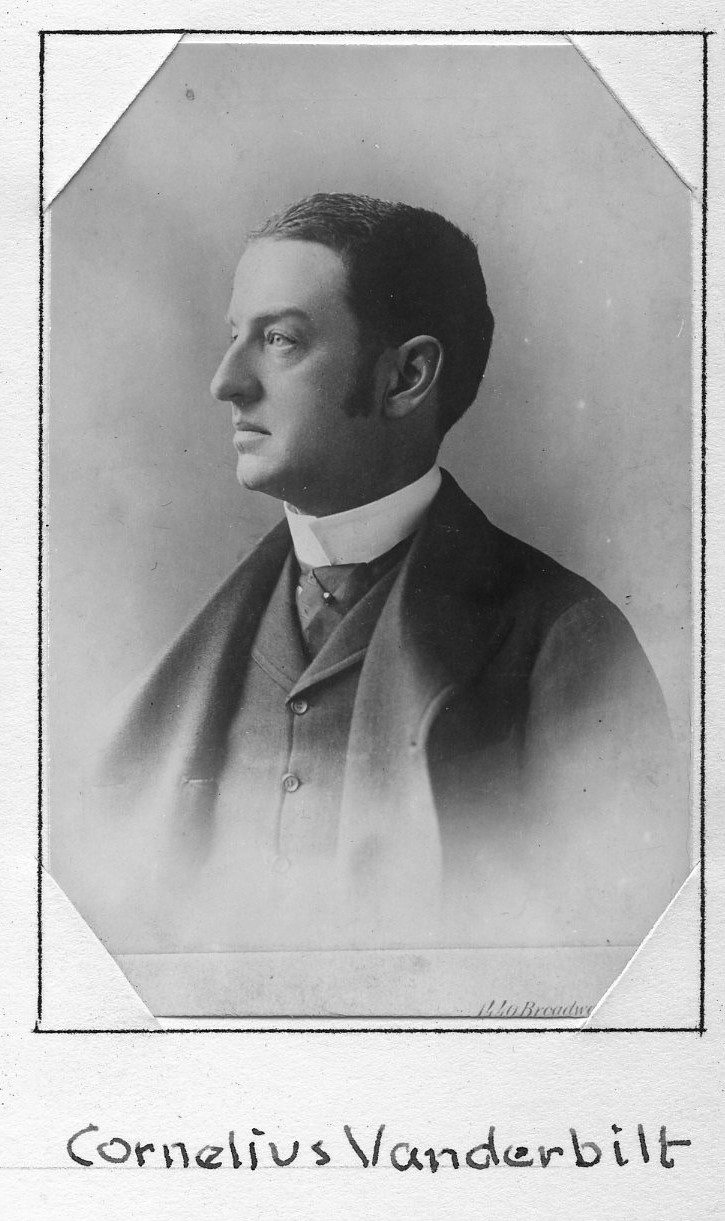Railroad/Philanthropist
Centurion, 1880–1899
Born 27 November 1843 in New York (Staten Island), New York
Died 12 September 1899 in New York (Manhattan), New York
Buried Vanderbilt Family Cemetery and Mausoleum , New Dorp, New York
, New Dorp, New York
Proposed by Robert Hoe III and Daniel Huntington
Elected 4 December 1880 at age thirty-seven
Archivist’s Note: Brother of George W. Vanderbilt; father of Cornelius Vanderbilt III; uncle of Vanderbilt Webb
Proposer of:
Seconder of:
Century Memorial
It will be generally admitted that Cornelius Vanderbilt was a model of what men of large wealth should be. He bore the responsibility early placed upon his shoulders of so administering a great fortune that in his hands it was a beneficent power, in the use of which “he learned the luxury of doing good.” A conscientious devotion to duty was one of his marked characteristics, which made him one of the most laborious of men, for he regarded himself as the trustee of a vast fortune, to be used for the help of others and for the general good. The important interests which were centered in his hands demanded unremitting toil. He was “never idle a moment, but thrifty and thoughtful of others,” and he gave an equal amount of care and labor to the charitable and religious organizations in which he was interested, for the extension of their influence and the promotion of their business affairs.
There has scarcely been a fund raised in this city or country in the last twenty years, for any benevolent or patriotic purpose, to which he did not contribute at first, or give enough in the end to make up the amount required. Noble monuments of his princely generosity stand on every hand: railroad branches of the Young Men’s Christian Association (of which he was the founder), churches, hospitals, university buildings and endowments, and general benevolent plans. But the world will never know the full extent of his unostentatious benevolence in the relief of poverty and suffering, the assistance to clergymen and students, young men and women out of employment, and the innumerable daily cases that appeal to a generous heart. He filled to the letter the standard of the Scriptures:
“Pure religion and undefiled is this: To visit the fatherless and widows in their affliction, and to keep himself unspotted from the world.”
He was able, high-minded, upright, public spirited and lovable, and his whole record can be best summed up in the simple description of one like him, by a great novelist, “He was a good man, he did good things.”
Henry E. Howland
1900 Century Association Yearbook

